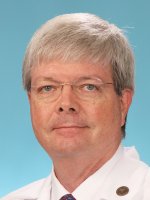The mammalian virome in genetic analysis of health and disease pathogenesis

Herbert W. Virgin, IV, M.D., Ph.D.
Edward Mallinckrodt Professor and Chair
Washington University School of Medicine
The Virgin laboratory uses genetic, structural, computational and sequencing methods to define mechanisms of viral pathogenesis and immunity in vivo. They identified the physiologic role and molecular mechanisms of several RNA and DNA virus immune evasion molecules and studied immune effector mechanisms including ISG15, cGAS and autophagy. They formulated and proved the hypotheses that virus-plus-host-gene interactions define disease phenotypes. By studying the metagenome they discovered the first murine norovirus and developed the first culture system for a norovirus. They have recently proven that bacteria control norovirus persistence, identified sterilizing innate immune responses to viral infection, identified constituents of the mammalian virome, showed that the enteric virome is substantially expanded in macaques with SIV infection, and identified changes in the enteric virome associated with human disease. Recent studies revealed that helminth infection reactivates murine and human herpesviruses from latency through viral-promoter responses to host cytokines.
Summary
Disease occurs in only some people carrying risk alleles, a phenomenon that may well be due in part to the influence of our virome. Chronic virus infection of mice protects the host against cancer and infection through symbiotic stimulation of innate immunity, and can complement multiple genetic immunodeficiencies. The virome may contribute to individual variations in the clinical presentation of disease. However, persistent viruses can also trigger “virus-plus-susceptibility-gene” interactions leading to bacteria-dependent inflammatory disease. These bacteria-dependent phenotypes are only observed when the virus and a mutant allele of a host gene are present at the same time. Virgin hypothesized that trans-kingdom metagenomic (viruses, bacteria, archaea, fungi, metazoans) interactions may regulate virus infection, immunity, and inflammation. His lab confirmed this hypothesis by showing that helminth infection can reactivate latent herpesvirus through cytokine competition between IFN-gamma and IL-4/IL-13 at a viral promoter, and can inhibit antiviral immunity.
The Virgin lab recently found that antibiotic treatment prevents persistent enteric norovirus infection, an effect rescued by fecal transplantation. This effect requires the IFN-lambda receptor but not adaptive immunity. Furthermore, treatment with IFN-lambda cures persistent enteric norovirus infection in the absence of adaptive immune cells, documenting the existence of what we believe to be sterilizing innate anti-viral immunity. These data beg the question of whether the virome is associated with human disease. His lab has found that the enteric virome is abnormal in both Crohn’s disease and ulcerative colitis. They also observed significant disease-specific increases in Caudovirales taxa despite detecting expected decreases in bacterial microbiome diversity. This observation is consistent with a predator-prey relationship between the enteric virome and the bacterial microbiome in these diseases.
Together these data indicate that mammals are best viewed as composite organisms in which the virome, and trans-kingdom interactions regulating and regulated by the virome, contribute to immunity, disease, and the genotype-phenotype relationship. Genetic analysis of disease risk, and the study of normal immunity, should incorporate consideration of the virome and trans-kingdom metagenomic interactions that control the virome.
This page was last updated on Wednesday, August 11, 2021